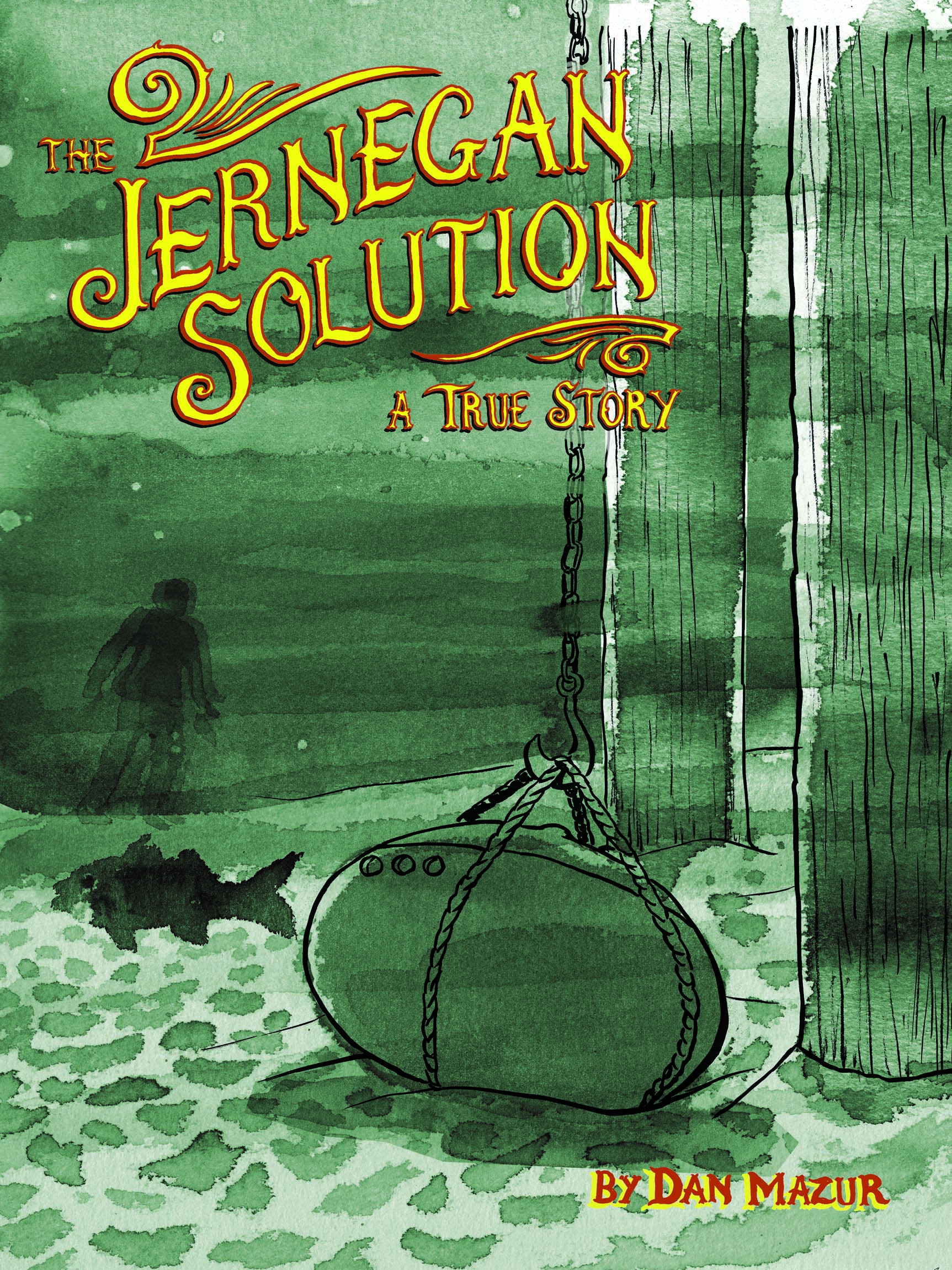
The printer is working hard to get this ready for MECAF!
You can also order this book now, from my twin brother Dan’s Ninth Art Press.

The printer is working hard to get this ready for MECAF!
You can also order this book now, from my twin brother Dan’s Ninth Art Press.
There really aren’t many ladies’ hats in my new comic…
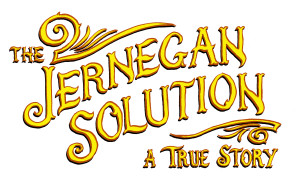 …but I did a lot of studies of them anyway.
…but I did a lot of studies of them anyway.
…all of that really just for this one panel:
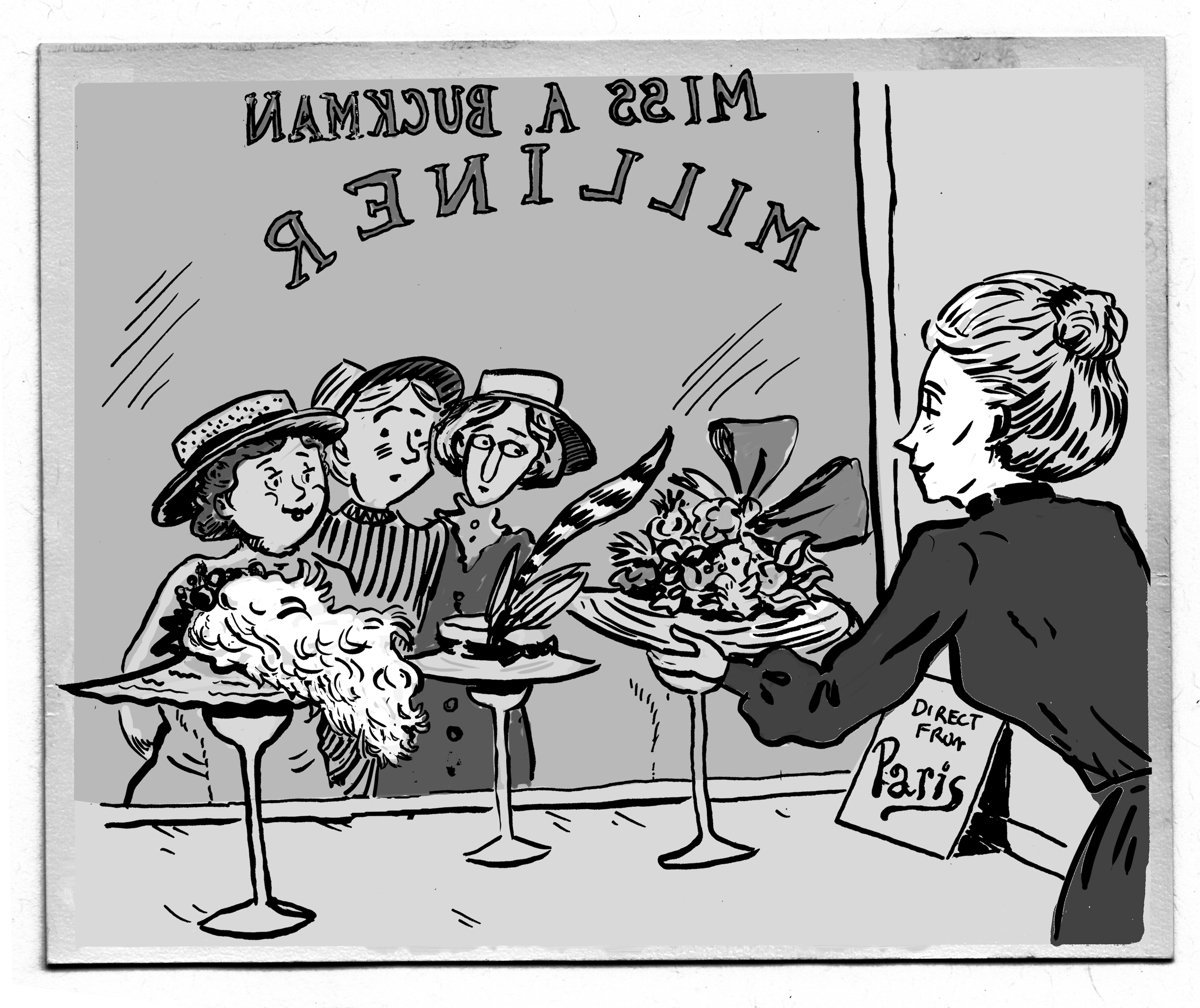
Working hard to get this comic ready for MECAF.
 My current comic, “The Jernegan Solution” is a true historical story set in 1898 in Lubec, Maine, the eastern-most town in the United States. I’ve only been able to visit Lubec once, so I have otherwise worked from historical photos for location reference, as well as for period props. Some examples are below. The comic will be ready for MECAF in Portland, on May 17th.
My current comic, “The Jernegan Solution” is a true historical story set in 1898 in Lubec, Maine, the eastern-most town in the United States. I’ve only been able to visit Lubec once, so I have otherwise worked from historical photos for location reference, as well as for period props. Some examples are below. The comic will be ready for MECAF in Portland, on May 17th.
WATER STREET, LUBEC
The main commercial street of the town:
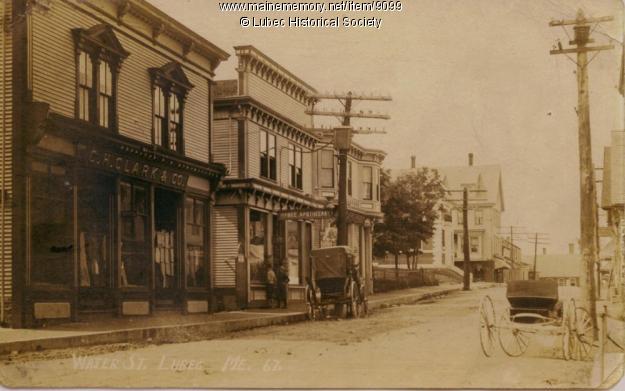
My sketch of it, and some architectural details:
THE STAPLES BUILDING
AÂ new office building at the time, home of the Lubec Herald newspaper office, where my journalist character works. It was located on Water Street.
The first “adjustment” I made from the photo was to have painted “Lubec Herald” letters on the window, instead of the sign leaning against the baseboard. Â I assume that sign was later put over the door, anyway :
Here’s how it looks in the final inks. I also added in another, more “picturesque” building to the right, based on one of the buildings in the other Water Street pictures (I think that the Staples Building was at the end of Water Street, not in the middle of the commercial district).
THE COMSTOCK MILL/”THE KLONDIKE PLANT”
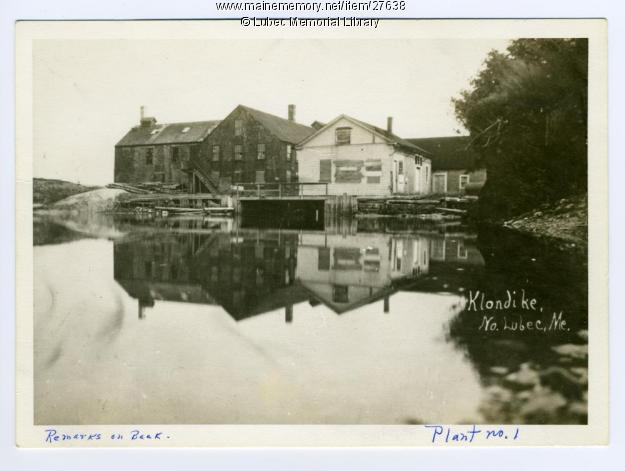
An old grist mill, which was purchased and transformed into… well, you’ll have to read the comic to find out!
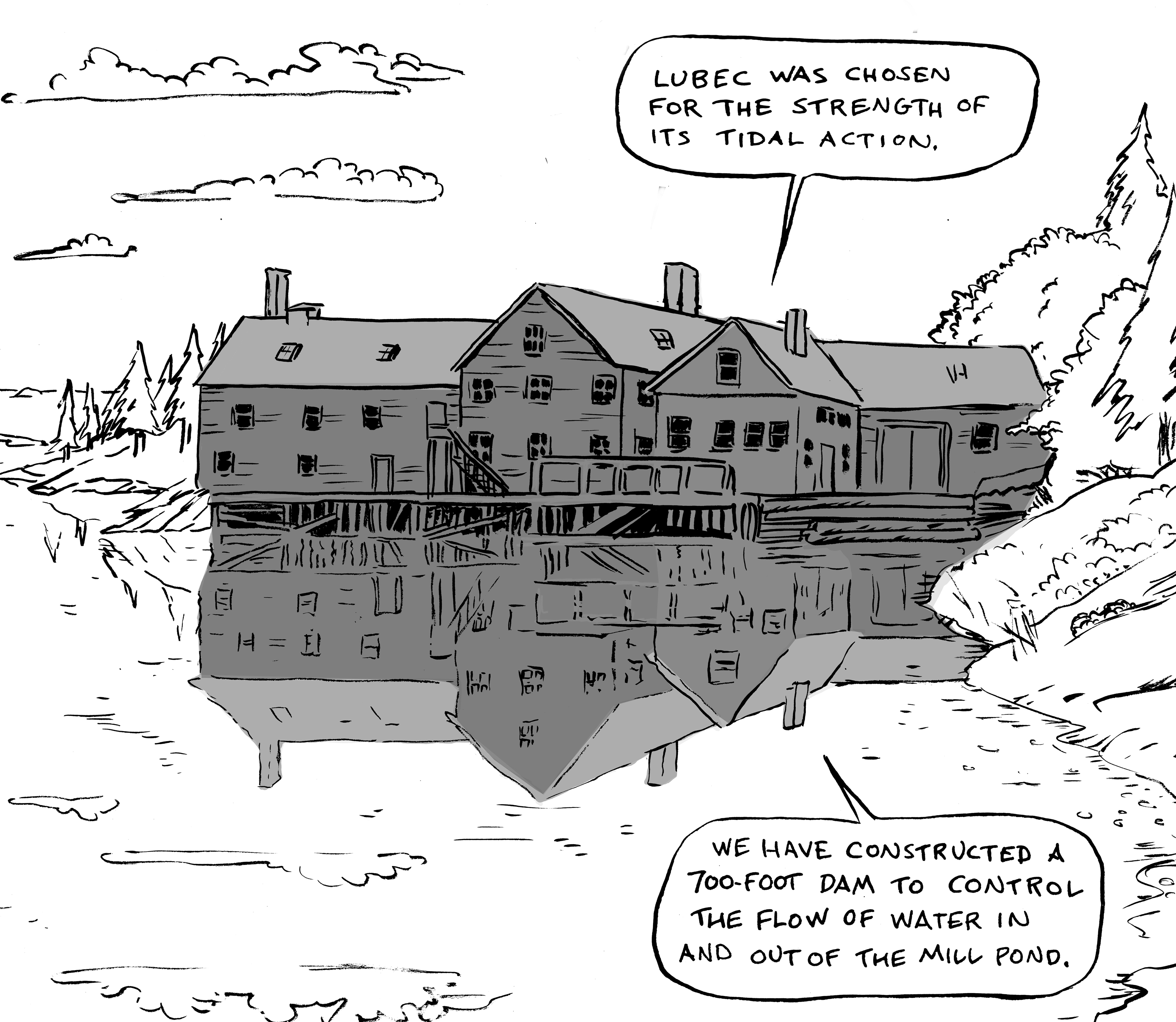
SCHOLES AND GLIDDEN TYPEWRITER
A key prop (journalist character). Â This machine was available at the time. Â Would a small-town newspaperman have been likely to have used one? Â I don’t know for sure. But I couldn’t resist using this beautiful typewriter, with the amazing painted decoration. Â I wish my PC looked like this.
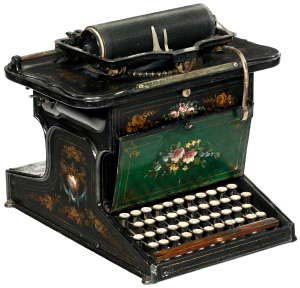
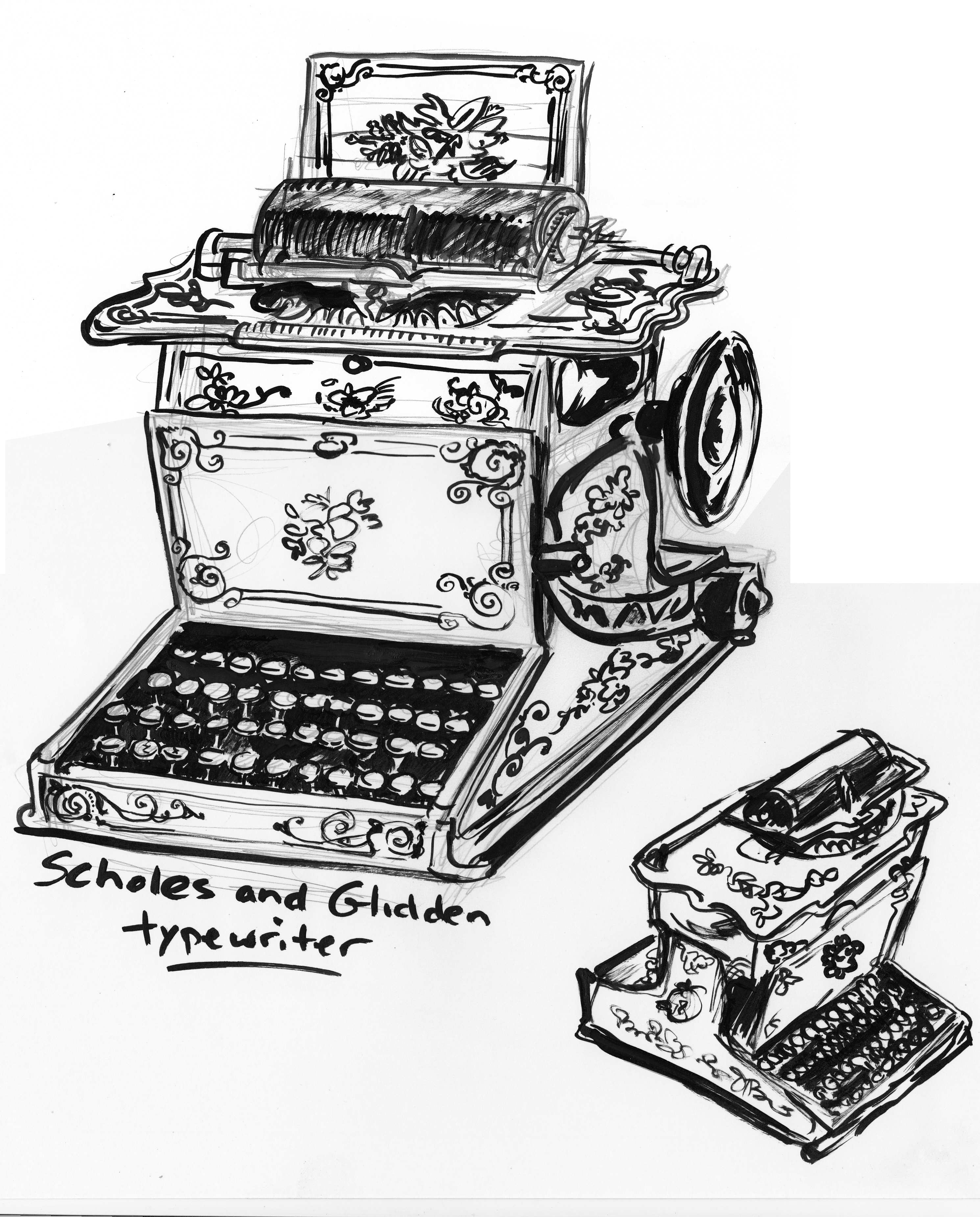
In the end, though, I felt I had to simplify the decorations somewhat, to be readable at the size of the image:
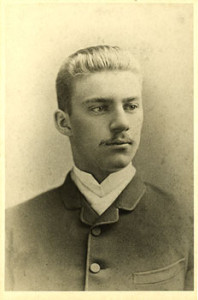
This is the only photo I could find of Charles Fisher, another principle character in the story. I liked the vain, dandy-ish look of it, which subtly fits with the character’s role in the story. Like his partne, Prescott Jernegan, he remains pretty mysterious in the historical record, and in the comic as well: he doesn’t actually say a word in the story, though he plays an important part. Here are some sketches I did. Some are stand-alone character doodles, others are taken from the rough versions of the pages, in which I was also developing the look of the characters.  In both this case and that of Jernegan, while I start from the photograph, I know that my visual development of the character is going through the prism of his role in the story, so that representing that personality in the drawing takes precedence over capturing a likeness — especially with such limited reference material.  In my drawings of Fisher, I went for a sort of “hooded” quality to the eyes, and a funny thing in the mouth — some combination of self-satisfaction and petulance that might be mistaken for humility.  I think this depiction combines what I think I see in the photo, with a pure imagining of the character based on what we know of his actions.
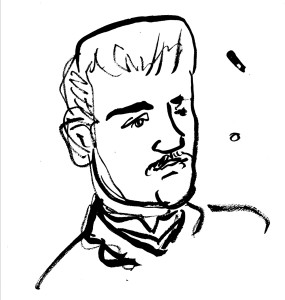 |
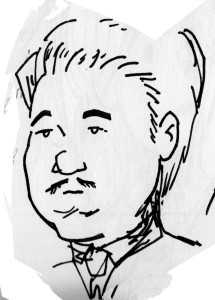 |
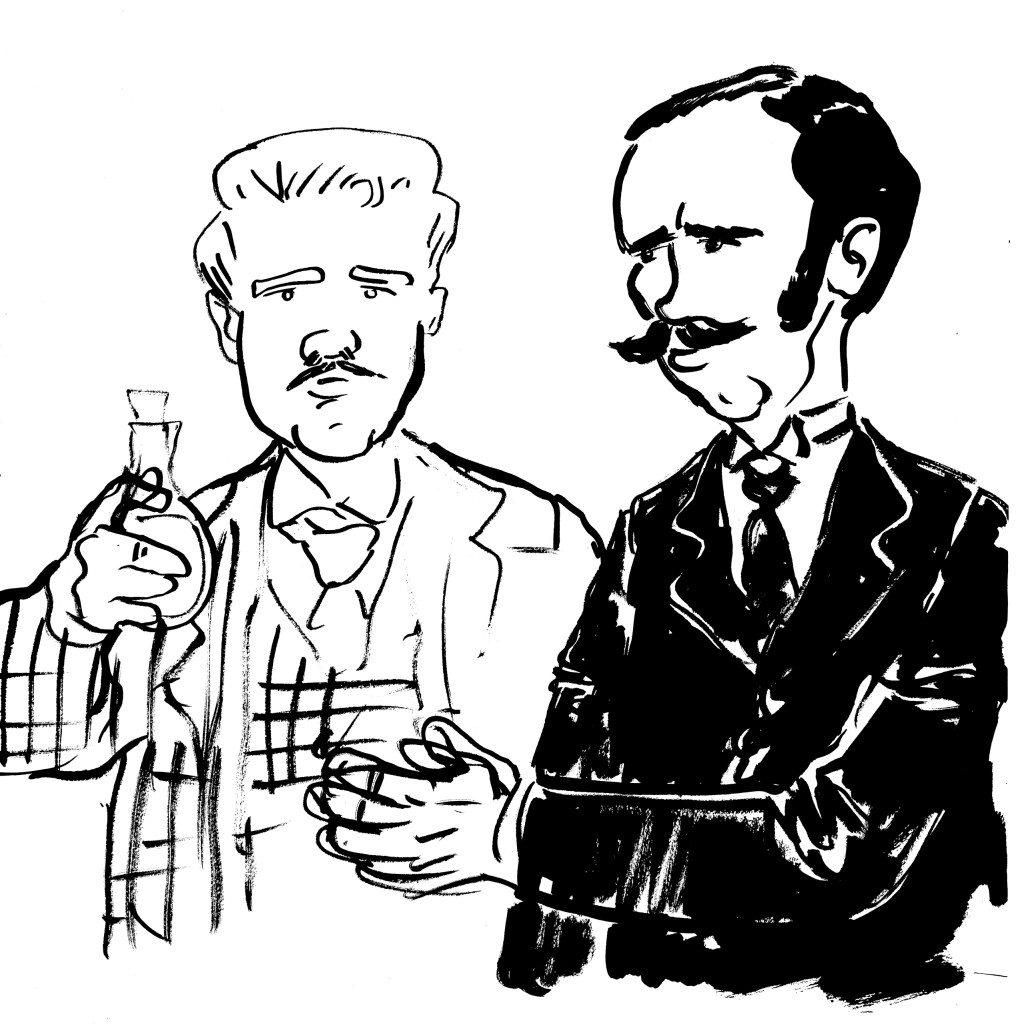 |
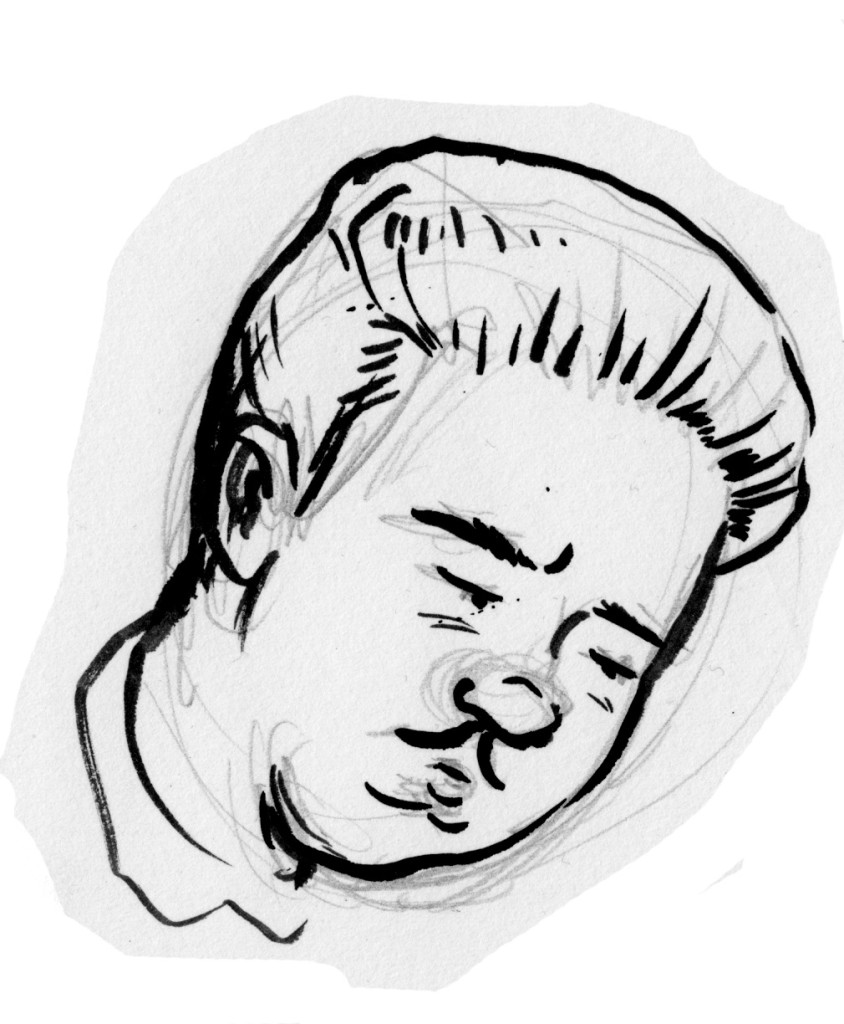 |
 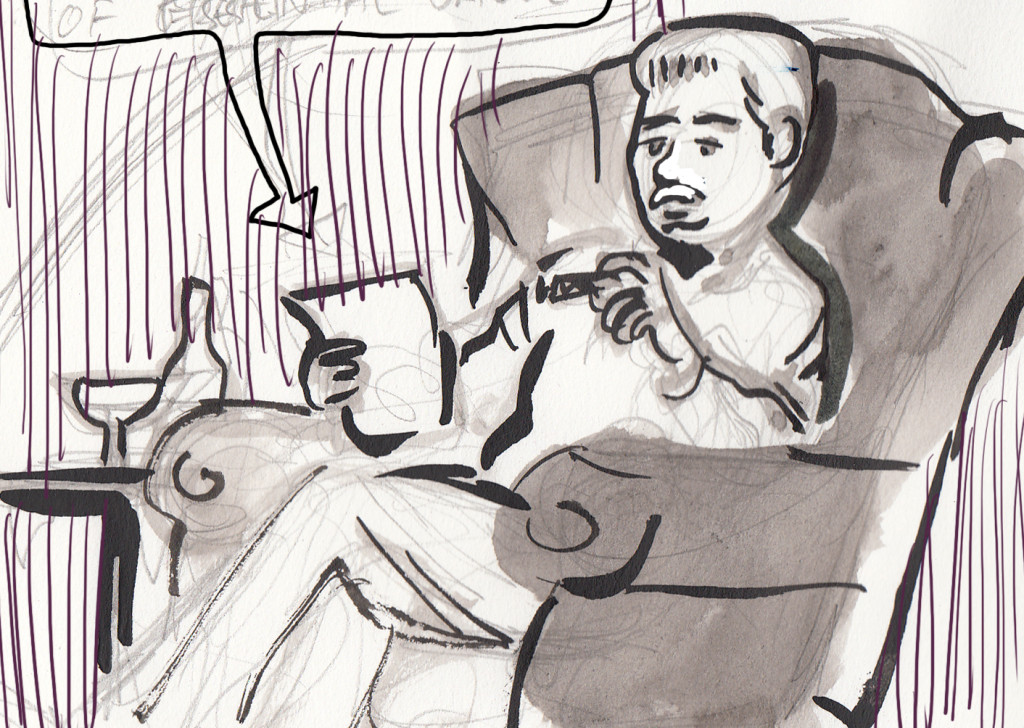 |
Some images of Fisher from the finished inks:
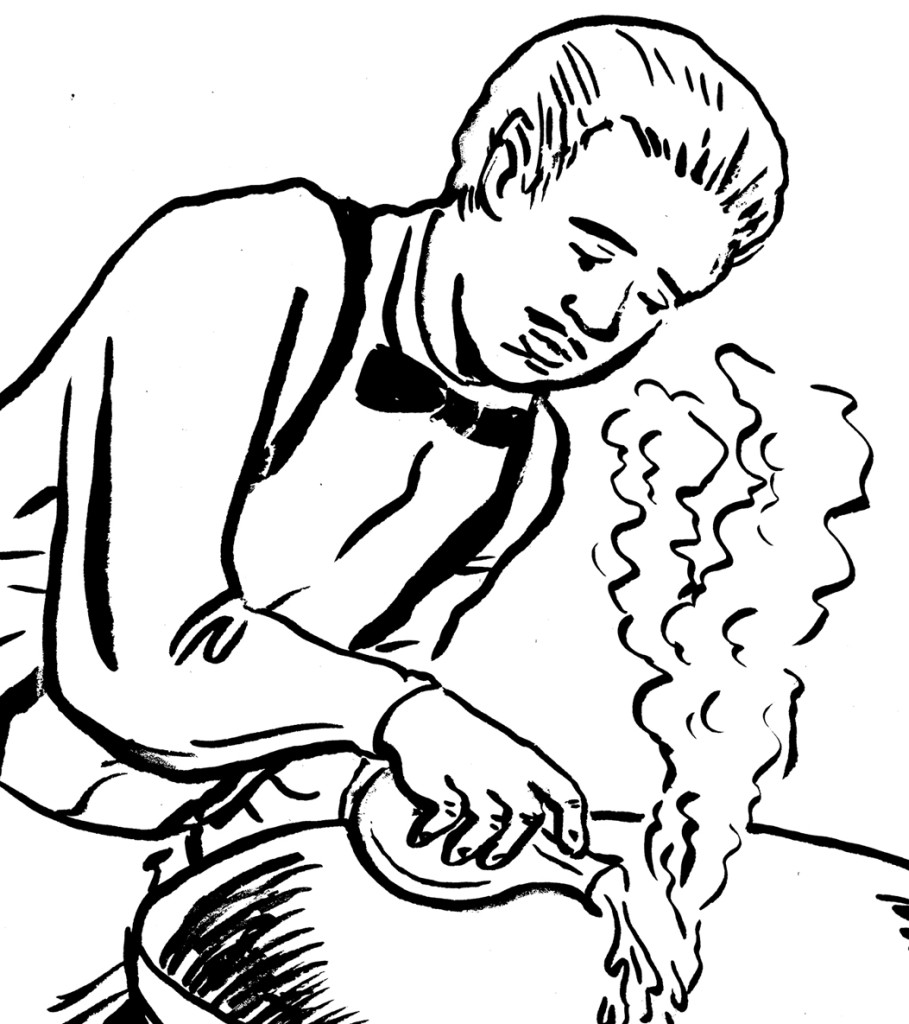 |
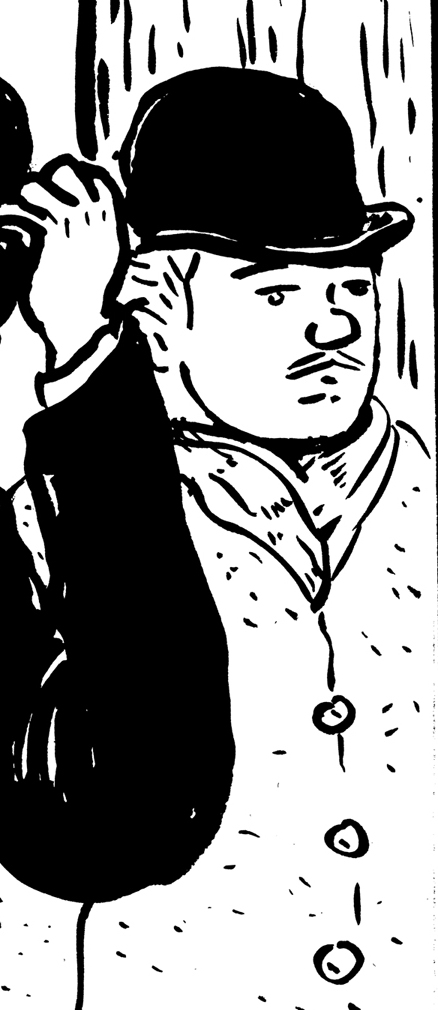 |
The third major character in the story is almost entirely fictionalized, the journalist Rob Getchell. The Lubec Herald in 1897-1898, from which we have most of what we know of the Jernegan story, was owned by “R. G. & F. L. Getchell Editors and Propietors.” I decided to combine them into one, and call him Rob. Â I know absolutely nothing about the real Getchells, beyond what can be gleaned from the tone of the writing in the old papers; from this I imagine a young, enthusiastic reporter, full of optimism about the modern era and its potentialities.
Getchell is the “stand-in” for the reader, the point-of-view character.  As such, I pushed the character in a simpler, more cartoony direction:
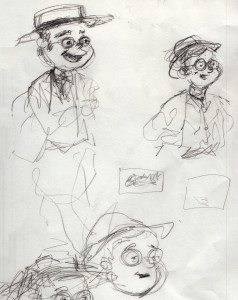 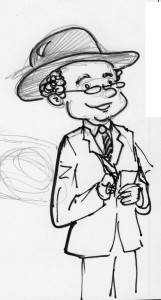 |
Then pulled back on the goofiness a bit: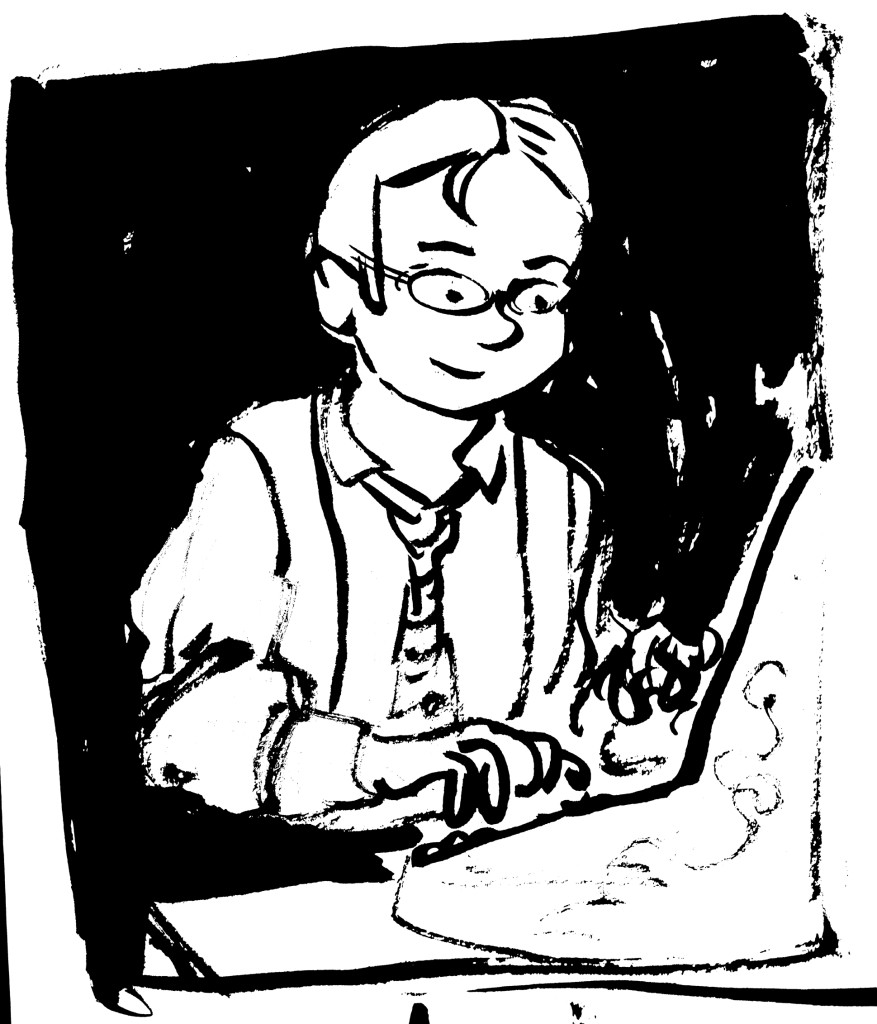
At one point, since this story is low on female characters, I considered changing Getchell’s gender. There were female reporters in those days, though it was rare.
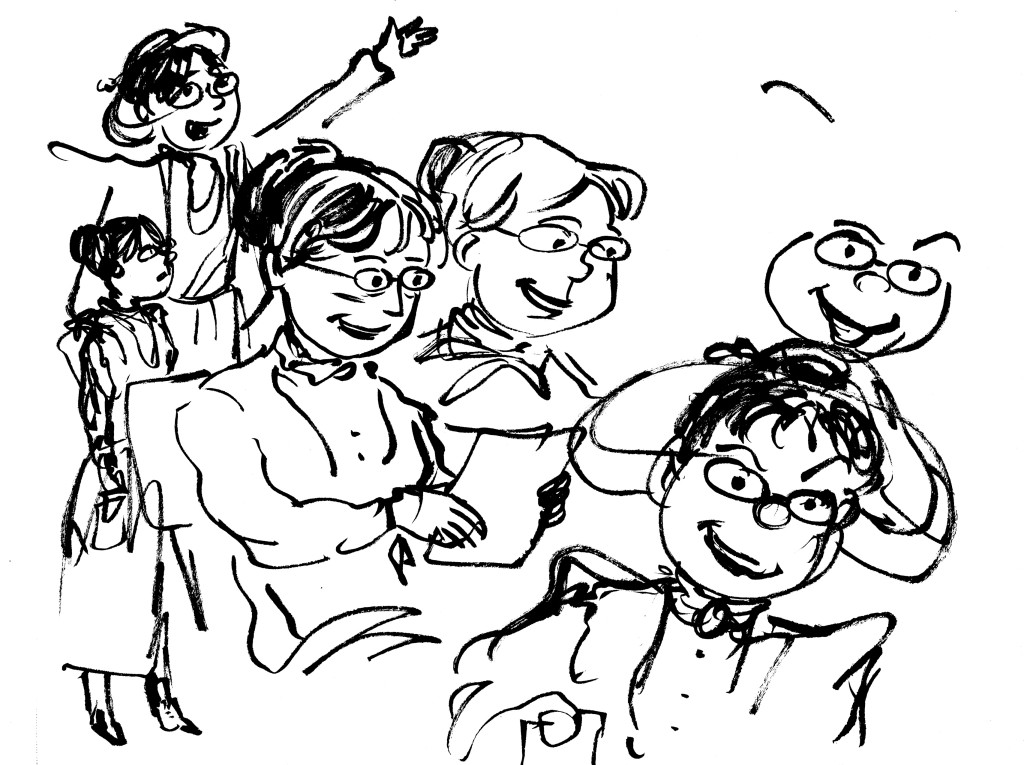
I decided not to in the end; the character turns out to be sort of a dupe, and it didn’t feel right to create a “glass-ceiling” shattering character then make a fool of her.
Here are some panels of Getchell from the final inks.
In terms of costume, since Getchell is a young man of the coming generation (in 1898), I thought the Panama Hat, a relatively new fashion, and round, tortoise shell glasses would be a good fit.
Here are some more character studies/sketches, developing some of the supporting characters:
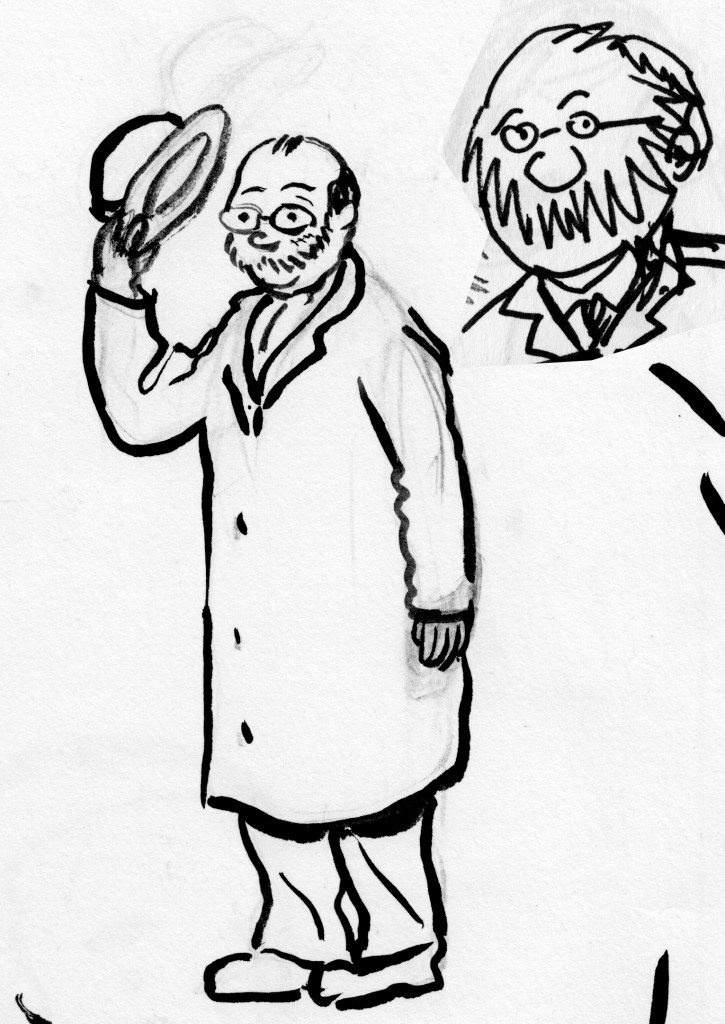
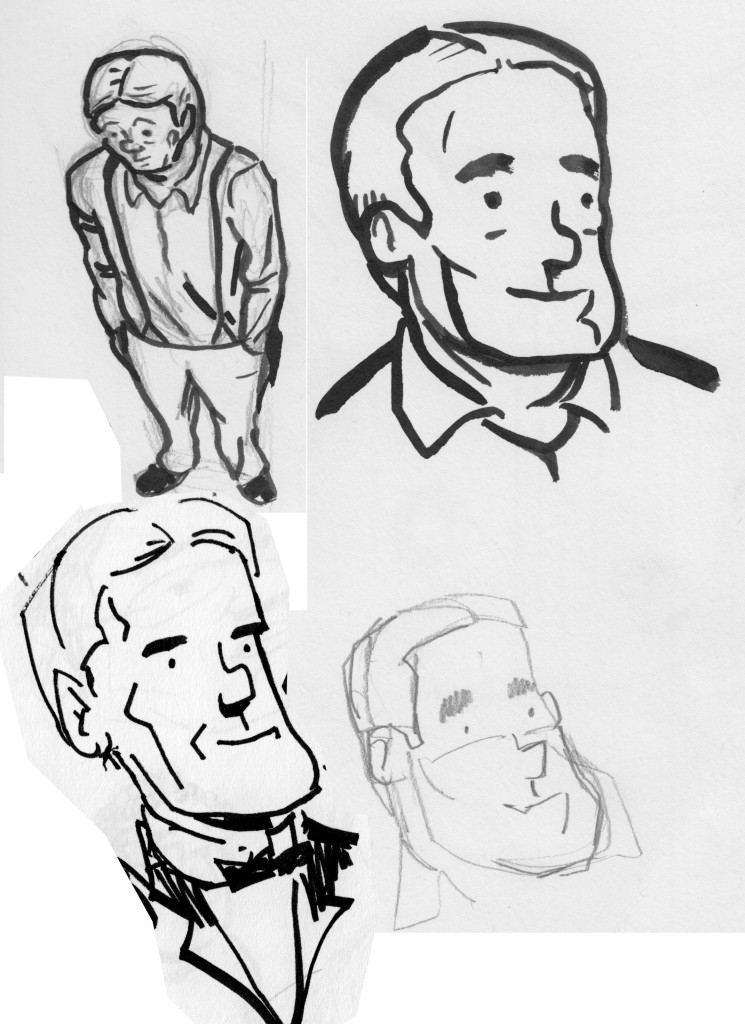
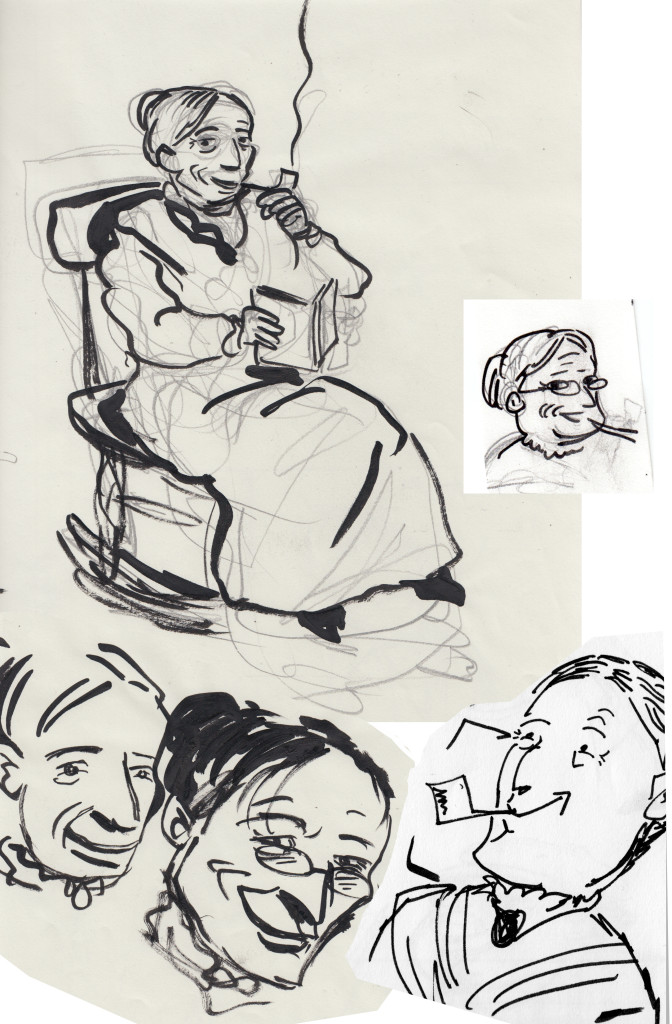
My principle characters in this comic are based on real historical figures. As far as I know there are only two photographs of my lead personage, Reverend Prescott Jernegan.  Starting from the photos, this is the look of the character evolved:
I especially like the one on the left, capturing the visionary quality I wanted for the character. Â Some early sketches:
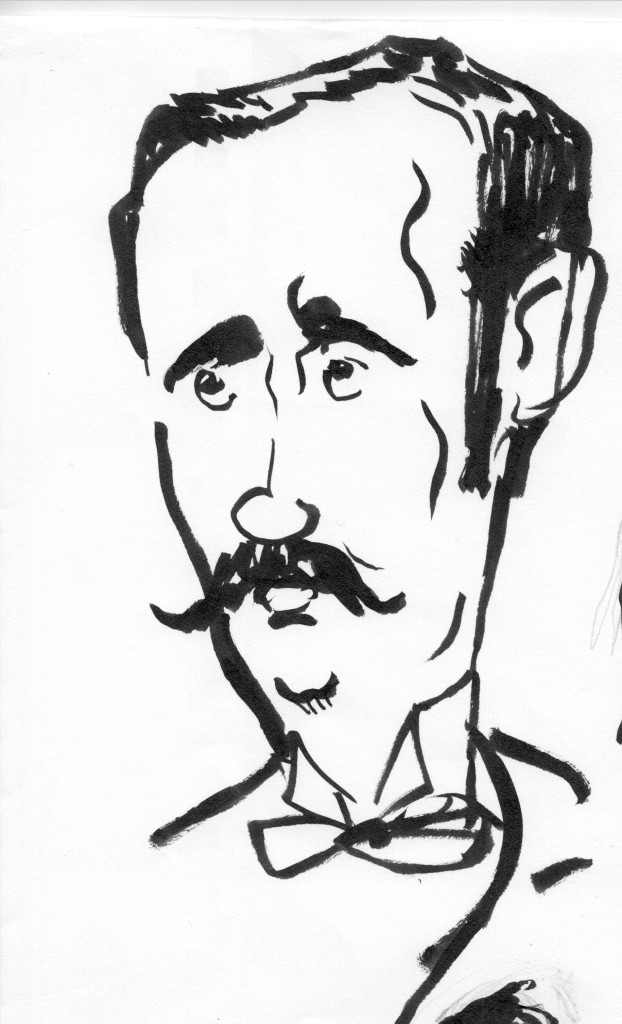 |
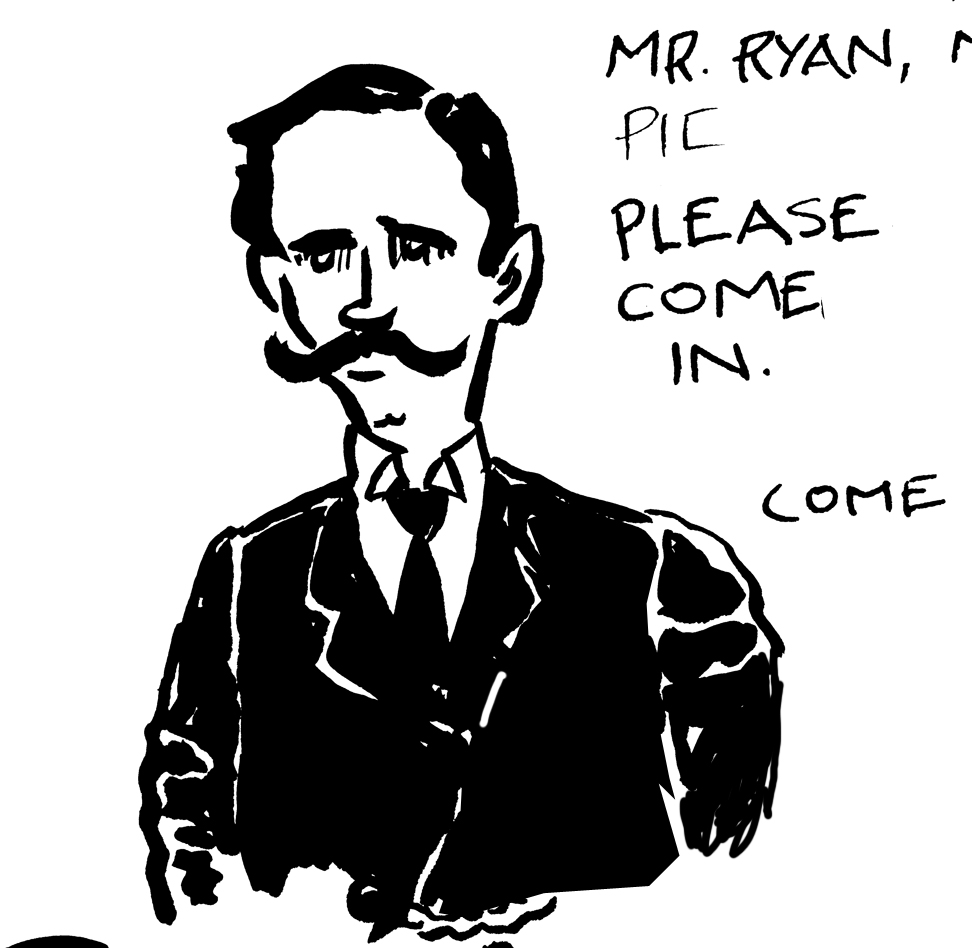 |
Gradually I moved toward a more stylized version of the character, and I wanted to give him a mysterious, impenetrable quality, and make his body angular and elongated:
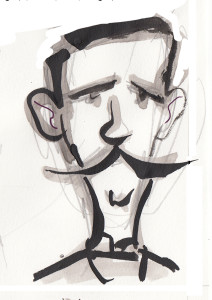 |
Here are some panels featuring the character from the final inked version of the comic:
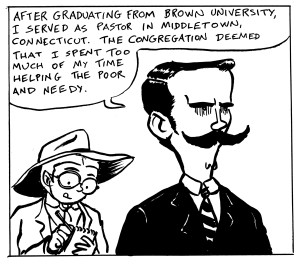 |
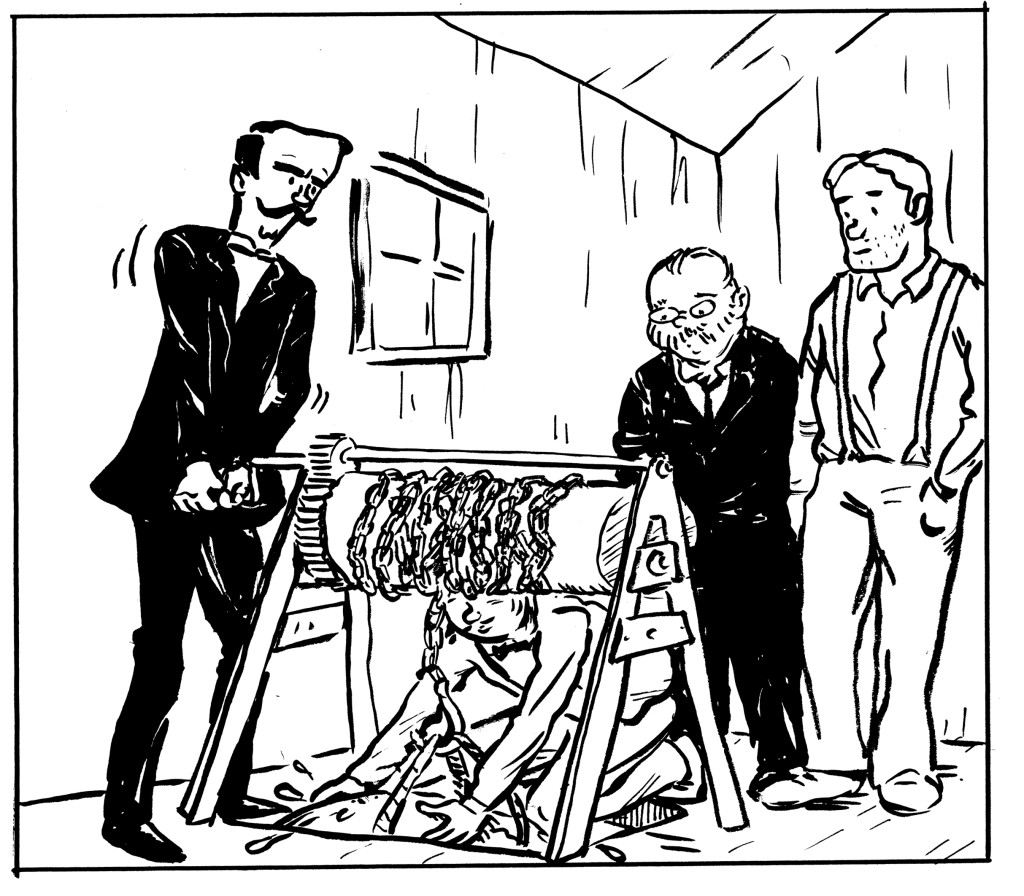 |
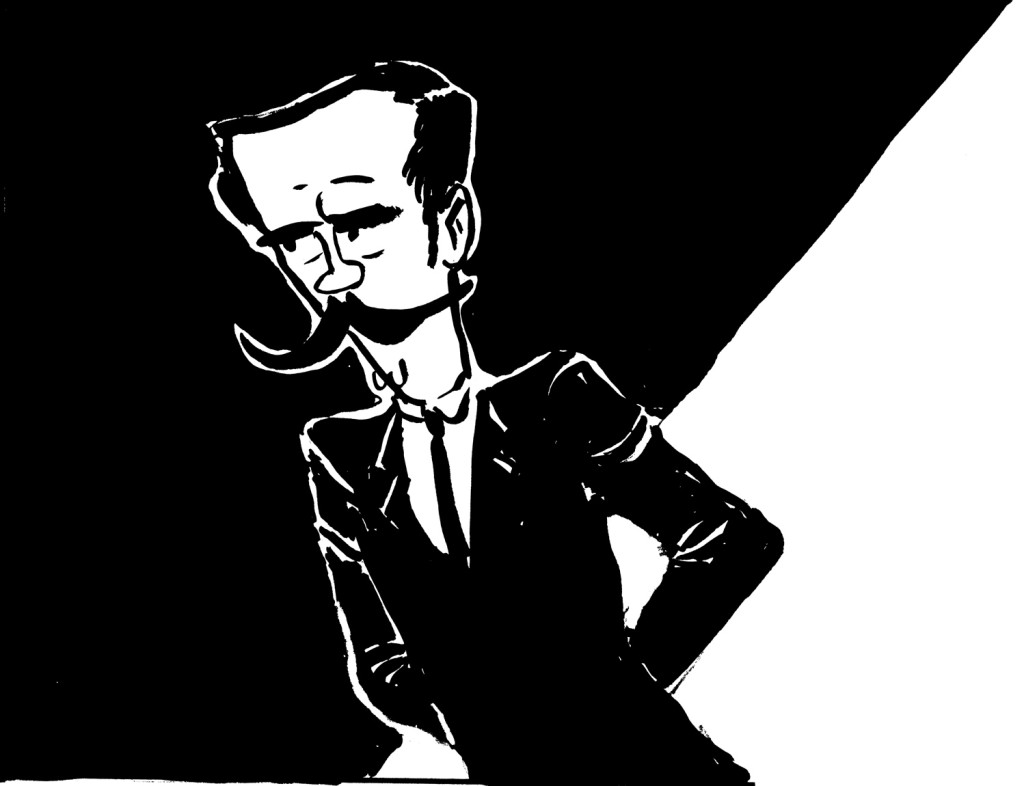 |
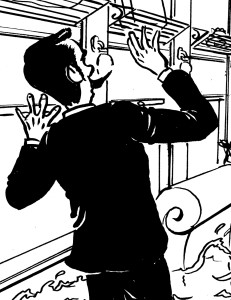 |
My new comic, “The Jernegan Solution” will make its debut at MECAF, the Maine Comic Arts Fest, in Portland, on May 17. Based on an historical incident that took place in Maine in the late 1890s, it will be 24 pages, black-and-white, and printed at about 8.5 x 11.  I originally began the project back in 2012, intending it for the Greatest of All Time Comics Anthology, but other work interfered, and I returned to work on it late last year.  Here’s the title/logo I’m working on: